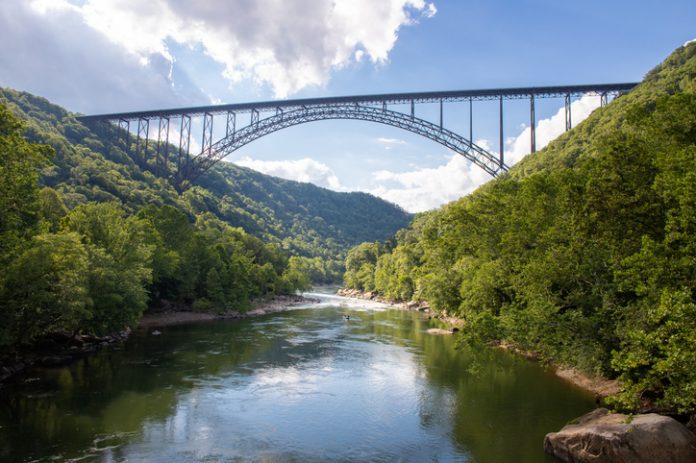The New River Gorge National Park and Preserve, in West Virginia, is America’s newest national park. It became the nation’s 63rd national park, the first designated in West Virginia, when former President Donald Trump signed the $2.3 trillion coronavirus relief bill passed in December 2020. A provision in the law redesignated the area, which had been a National River since 1978, as a National Park and Preserve.
New River Gorge National Park and Preserve is 70,000 acres in size, encompassing 53 miles of the New River from Bluestone Dam to Hawk’s Nest Lake in West Virginia
The Park service says the New River is among the oldest rivers in North America, and the park contains the longest and deepest gorge in the Appalachian Mountains.
A variety of outdoor recreation activities are allowed in the park, for instance, camping, cycling, hiking, rock climbing cliffs, whitewater rafting, and, unusual for a park, hunting.
Because hunting was a long-standing use of the National River, hunting is only barred in 10 percent of the entire Park, with 90 percent managed as a Preserve where traditional uses, including hunting, are still allowed.
Bi-Partisan Support for Park
Both Democrat and Republican legislators from West Virginia had pushed for redesignating the New River Gorge National River as a National Park and Preserve, maintaining historic uses while giving the area more stringent levels of protection. Sen. Joe Manchin (D-WV), Sen. Shelley Moore Capito (R-WV), and Rep. Carol Miller (R-WV), helped get the provision designating New River Gorge a national park into the Coronavirus relief package.
“The New River Gorge is such an important part of West Virginia and a real source of pride in our state,” said Capito in a written statement. “I am thrilled my legislation redesignating the National River as a National Park and Preserve was included in the legislative package that became law at the end of last year.
“Redesignation of the National River to a National Park and Preserve will shine a brighter light on West Virginia and all that it has to offer, and provide another catalyst for our tourism industry and local businesses,” Capito’s statement said.
Representatives of the U.S. National Park service also expressed pride in the redesignation of the National River as a National Park.
“We feel fortunate to play a role in preserving for future generations some of the most significant natural and cultural resources in our country,” Lizzie Watts, the park superintendent, said in a press statement released upon the redesignation becoming official.
H. Sterling Burnett, Ph.D. (hsburnett@heartland.org) is the managing editor of Environment & Climate News.


























